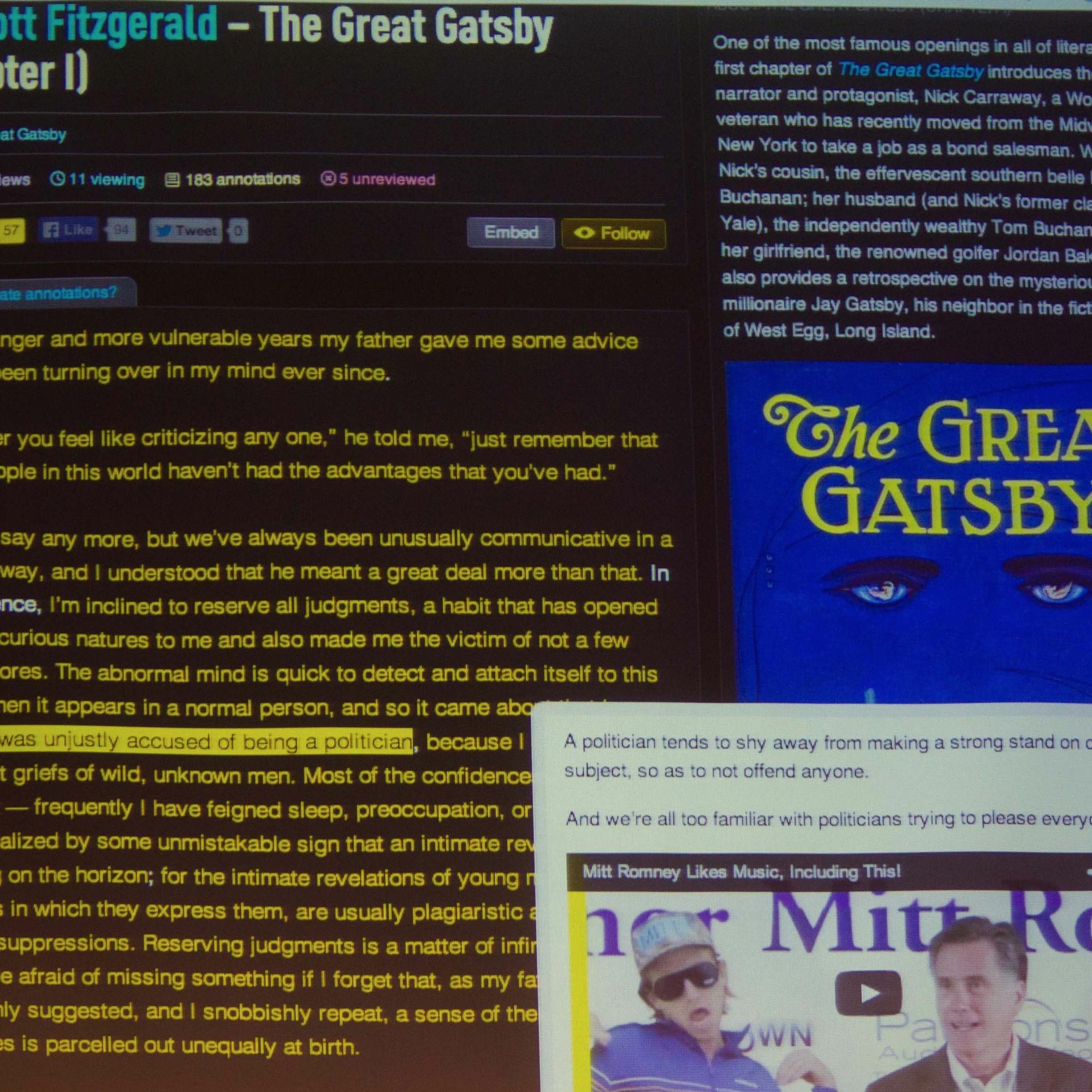Online Annotation and the Future of Reading

b'Using the tools of online textual annotation -- the platform Rap Genius, its spinoff site Poetry Genius, or MIT\'s own Annotation Studio -- readers can collaborate on annotating or interpreting a work, make their annotations public, and respond to interpretations by others. We will be joined by creators, facilitators, and users of these sites to discuss how online annotation is changing practices of reading, enriching practices of teaching and learning, and making newly public a previously private encounter with the written word.\\n\\nSpeakers:\\n\\nWyn Kelley is a senior lecturer in Literature. She has worked for many years with the MIT\'s digital humanities lab, HyperStudio, and is the author of Melville\'s City: Literary and Urban Form in Nineteenth-Century New York (1996) among other works.\\n\\nKurt Fendt is Director of HyperStudio, MIT\'s Center for Digital Humanities. HyperStudio explores the potential of new media technologies for the enhancement of research and education.\\n\\nJeremy Dean, AKA Lucky_Desperado, is the "Education Czar" at Rap Genius, an online database of song lyrics (and poetry on the spinoff site Poetry Genius) that users can annotate freely.\\n\\nModerator: Noel Jackson is a Professor of Literature at MIT and author of Science and Sensation in Romantic Poetry (2008).'